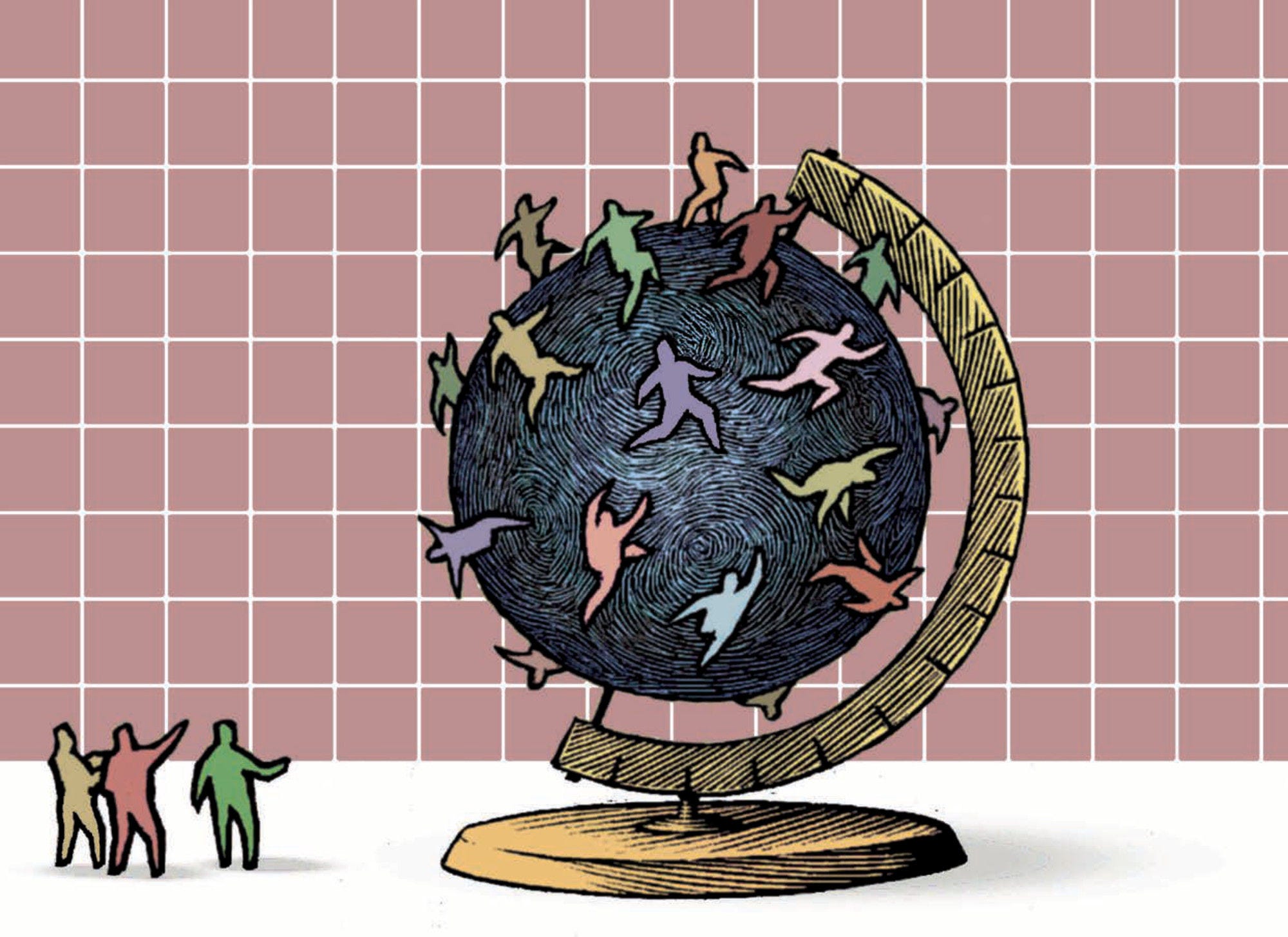In 2017, France received 259 000 new immigrants on a long-term or permanent basis (including changes of status and free mobility), like in 2016. This figure comprises 30.4% immigrants benefitting from free mobility, 11.6% labour migrants, 37.8% family members (including accompanying family) and 12.6% humanitarian migrants.
Around 78 000 permits were issued to tertiary-level international students and 21 000 to temporary and seasonal labour migrants and trainees (excluding intra-EU migration). In addition, 241 000 intra-EU postings were recorded in 2017, an increase of 19% compared to 2016. These posted workers were generally on short-term contracts.
Algeria, Morocco and Italy were the top three nationalities of newcomers in 2017. Among the top 15 countries of origin, Afghanistan registered the strongest increase (3 200) and Portugal the largest decrease (‑4 100) in flows to France compared to the previous year.
In 2018, the number of first asylum applicants increased by 21.1%, reaching around 111 000. The majority of applicants come from Afghanistan (10 300), Albania (8 300) and Georgia (6 800). The largest increase since 2017 concerned nationals of Georgia (4 900) and the largest decrease, nationals of Albania (‑3 100). Of the 115 000 decisions taken in 2018, 28.4% were positive.
Emigration of French people to OECD countries decreased by 6.3% to 118 000. Approximately 12.6% of this group migrated to Germany, 11.9% to Switzerland and 11.9% to the United Kingdom.
After the 2016 reform of the rights of foreigners, in 2017 France continued to implement provisions relating primarily to economic migration (rollout of multi-annual residence permits, new residence permits for international talent, etc.) through the publication of numerous decrees implementing the Law of 7 March 2016 on the rights of foreigners. It also continued work on transposing EU Directive 2016/801 of 11 May 2016 on the conditions of entry and residence of third-country nationals for the purposes of research, studies, training, voluntary service, pupil exchange schemes or educational projects, and au pairing. In 2017, the French Tech Visa scheme was launched, designed to attract innovative companies, start-ups and foreign investors. The France-Visas portal was launched in October 2017 to facilitate online visa applications.
In terms of the integration of newly arrived foreigners, the French integration contract (contrat d’intégration républicaine, CIR) was fully implemented in 2017 after entering into force on 1 July 2016. For newly arrived foreigners, the signing of the CIR marks the start of the French integration process, and offers the possibility of civil training, language training and help in finding local co-ordination units tailored to their needs. In June 2018, the Prime minister, through the Interministerial Integration Committee (C2I), outlined a major reform of the integration policy to be led by the Ministry of Interior. As of March 2019, the purpose of the reform is to strengthen the personalised integration pathway and the related CIR, in particular by doubling the number of hours of language training and civil training, creating a specific language pathway for the illiterate, and boosting the vocational education component. The C2I also approved the allocation of further credit to considerably strengthen the integration policy for newly arrived foreigners, especially at the level of the French administrative regions.
In its efforts to combat illegal employment, France continued to put in place measures to fight clandestine employment and fraudulent postings, notably by strengthening obligations for contracting authorities and instructing parties.
In 2017, France significantly increased its accommodation capacity for asylum seekers. The main objective was to improve the readability, effectiveness and fluidity of programmes to manage asylum applicants and refugees, and to create new places. On 12 July 2017, the government presented a plan designed to improve the effectiveness of the asylum system, strengthen the fight against illegal immigration, improve the integration policy, and make France more attractive to international talent. The action plan will pave the way for a new law on controlled immigration, guaranteed right of asylum and successful integration (enacted on 10 September 2018).
In November 2018, the Prime minister presented the national strategy for attracting internationally mobile students. The principal objective is to increase the number of new international students in France by introducing a simplified visa policy, and increasing both the supply of French as a foreign language (FLE) courses and the range of courses taught in English. There are also plans to increase tuition fees and differentiate them according to levels of educational attainment and the revenues of students and their families. Lastly, there are also plans to improve and harmonise reception conditions for international students by creating a label and tripling the number of scholarships awarded.
For further information:
www.immigration.interieur.gouv.fr
www.ofii.fr
www.ofpra.gouv.fr
